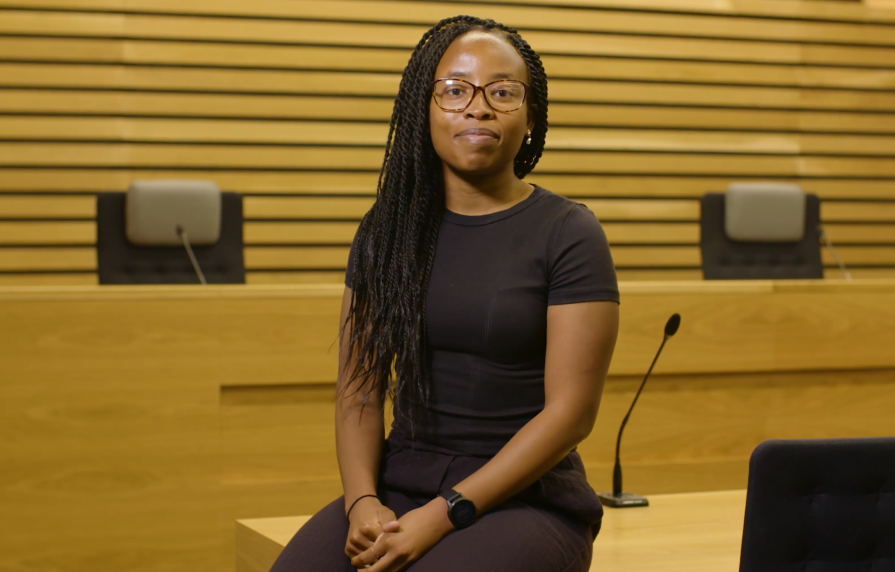Category: Student perspectives
Participating in a Mock Family Law Hearing
On 7 February, LLB law students Lucy, Mindy and Eloise took part in a Mock Family Law Hearing. This mirrored courtroom proceedings for a Child Arrangements Hearing, with the students representing their clients’ wishes regarding when their children should spend time with each parent.
… Read moreMy experience participating in the Willem C. Vis International Commercial Arbitration Moot
International Commercial Law LLM student Elene Kalandiia recently took part in the Willem C. Vis International Commercial Arbitration Moot in Vienna – a competition for law students to develop and practise advocacy skills in international commercial law and arbitration. She shared her experience of preparing for the competition, and how it sharpened her advocacy, networking, and employability skills.
… Read moreMy experience of the Cross Examination Exercise with the Avon and Somerset Police
Earlier this month, law students were given the opportunity to take part in a cross-examination exercise with Avon and Somerset Police. Final year LLB student Sophia Manley shares her insight into the exercise – including what a cross-examination is, the role she and other law students played, and her highlight of the event.
… Read moreMy experience on the Black Student Internship with Leigh Day
To celebrate Pro Bono Week 2023, University of Bristol Law graduate, Oladayo Ige gives her first hand experience of working in the Law School’s pro bono legal service, the Law Clinic and being an intern as part of the Black Student Internship offered in partnership with law firm, Leigh Day.
… Read moreWhy this mooting competition was a highlight of our university years
Participating in mooting competitions is an excellent way to develop your advocacy skills – particularly if you are looking to pursue a career at the bar. The Law School has a well established advocacy programme open to current students throughout the academic year.
… Read moreWhy you should apply for a Think Big about Global Justice Scholarship
Recent law graduate and recipient of a Think Big about Global Justice Scholarship, Kudzi Manase, explains how she came to study law in the first place and what inspired her to apply for the scholarship to kickstart her career.

Why Bristol?
… Read moreHow being a volunteer in a dynamic university has changed me
For this blog we caught up with Aryan Mandal, who shares his thoughts about being an international student here – and how the culture and spirit of the university, combined with his experience working as a volunteer lawyer, has seen him grow as a human with ambition for the future.
… Read moreMy experience as a Freshfields Stephen Lawrence Scholar and how it has helped shape my future
The University of Bristol supports eligible first year law students to apply for the Freshfields Stephen Lawrence Scholarship Scheme. Launched in 2013, the scheme seeks to address the disproportionate under-representation of black and black mixed-race men from less socially mobile backgrounds in large commercial law firms, and in recent years other ‘City’ careers too.
… Read moreMy internship experience: developing my employability, furthering my academic studies and working to promote race equality
Recent LLB law graduate, Lottie Boateng-Kennett tells us more about undertaking an internship working as a Research Assistant at Research Action Coalition for Race Equality (RACE) at the end of her final year – opening up opportunities, experiences and the making of new friends in the sphere of understanding and tackling race and equality.… Read more
